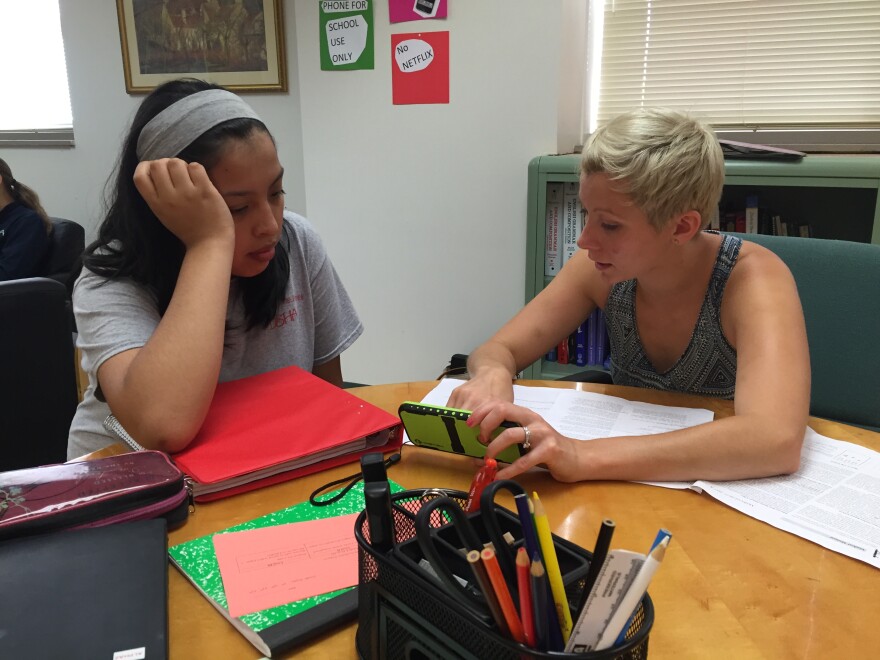We all hold our fair share of stress – work, family matters, keeping a social calendar.
For high school students, that list also includes homework, thinking about college and a host of other “teenage” worries.
One all-girls high school in Milwaukee is trying to give its students the tools to manage stress – and take responsibility for their own well-being.

This isn’t your average gym class. In fact, it’s not gym class at all.
Freshman at Divine Savior Holy Angels High School are trying out the latest fitness-dance craze, Zumba – not for a grade, but for enjoyment.
Two rows of girls, clad in tee shirts and shorts, are in a small dance studio mimicking their instructor, occasionally giggling at their own missteps.
It’s part of the school’s new focus on wellness.
Academic dean Heather Moran Mansfield says several years back, she and her colleagues became aware of the need to focus on students’ health – beyond nutrition and physical fitness.
“We had seven years of data from an in-house school climate survey,” Mansfield recounts. “The students were reporting super high levels of stress, year after year after year. And we really wanted to do something about it.”
What they did was invite speakers, host school-wide assemblies, even plaster posters about sleep and exercise across hallways. But nothing moved the needle on student stress levels.
That is until school leaders changed their approach -- from one-off programs to full-on integration.
DSHA staff revamped the curriculum to make wellness a part of every single day. Literally – students’ schedules now include a wellness period five days a week.
Two of those days, students participate in traditional gym class-type activities. The other three days, the girls decide what care they need.
“Students are either working with our fitness and wellness instructors, or they’re able to use that time for their own personal wellness,” she explains. “They could go see a school counselor, they could go to the library, chapel to pray/meditate, can see teachers for help.”

Upstairs from the fitness studio, freshman Olivia Larson shows up to get help from her math teacher during the wellness period -- something she couldn’t do in middle school.
“We had study hall, but you’d have to go see the teacher after school or before school,” Larson explains. “It’s kind of nice to have it during the day. If I don’t get something, I can come in and ask them here,” she adds, gesturing to the school’s ALPHA room, or ‘Academic Learning Place for Higher Achievement.’
Sophomore Bonnie Raechal Beres agrees that having free time to address her own needs is helpful. She says the concept of wellness is something staff members impress on students from day one.
“I think it just means mentally feeling good, and knowing that you’re going to be ok. Feeling secure in what you have to do, and how you’re going to do it,” she says.
Staff members say they hope the girls absorb the lesson that if they take care of themselves, they’ll probably perform better.
Health teacher Rachel Uihlein says the very first thing she teaches is the importance of managing stress.
“Obviously we can’t live in bubbles, we can’t wrap them in plastic wrap and send them out into the world,” Uihlein laughs. “So what’s really important is that they have the techniques and the awareness, so that when stress does become an issue in their life, that they can address it, or that they know how to ask for help when they feel like it’s beyond them.”
"We can't wrap them in plastic wrap and send them out into the world."
The kind of schedule realignment DSHA worked out is attainable at other schools, too, according to academic dean Heather Moran Mansfield. She says all it takes is a shift in thinking.
"Whatever habits they develop here, we want them to be lifelong habits,” Mansfield says. “Getting beyond the, ‘you take a class in something and you learn it and you pass the test or the quiz,’, but that this is something that you integrate throughout your life.”




